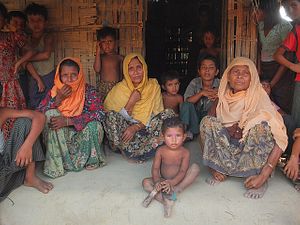On May 20, the foreign ministers of Malaysia, Indonesia and Thailand met in Putrajaya to discuss the region’s refugee crisis. This was followed on May 29 by a Special Meeting on Irregular Migration in the Indian Ocean was held in Bangkok, attended by 20 governments and international agencies.
Many expected that these emergency meetings would immediately translate into concrete resolutions to rescue the refugees, mostly from Myanmar and Bangladesh, who are still stranded at sea. The International Organization for Migration estimated that 4,000 refugees are still lost, while 3,200 have already landed in Malaysia and Indonesia.
Overall, the meetings yielded positive results. In Bangkok, the delegates identified urgent actions in response to the crisis. These included:
– Intensifying search and rescue operations to ensure safety of the irregular migrants at sea;
– Ensuring that UNHCR and IOM have access to the migrants;
– Identifying those with protection needs and paying particular attention to the protection of vulnerable groups, including women, children, and unaccompanied minors;
– Strengthening information and intelligence sharing mechanisms to provide accurate data on the whereabouts of migrants and vessels stranded at sea;
The meeting concluded with a statement that also recommended measures to comprehensively prevent irregular migration, such as the strengthening of national law enforcement to combat people smuggling and human trafficking and the creation of a special investigation taskforce among the key affected countries to combat transnational organized criminal syndicates.
In Putrajaya, the ministers expressed their governments’ determination to continue to take the necessary action to bring the transnational smuggling and trafficking syndicates to justice.
They agreed to provide temporary shelters to the refugees, but they called on the international community to provide the necessary support and financial assistance.
“The international community will take responsibility for the repatriation of the irregular migrants to their countries of origin or resettlement to third countries within a period of one year,” they added.
In both Putrajaya and Bangkok, the delegates underscored the importance of addressing the root causes of the problem. They proposed capacity building in local communities, especially in at-risk areas. They sought support for the granting of economic incentives that create more jobs, promoting trade and investment and development assistance to affected countries. Importantly, they mentioned the promotion of full respect for human rights and adequate access to basic rights and services such as housing, education, and healthcare.
But despite acknowledging the urgency of the refugee crisis, the meetings in Putrajaya and Bangkok failed to address some crucial issues. For example, the word “Rohingya” was not mentioned in the concluding statement disappointing several human rights groups. Many were hoping that Myanmar’s failure to recognize the Rohingya ethnic group would be specifically cited as a contributing factor to the refugee problem.
Charles Santiago, chairperson of the ASEAN Parliamentarians for Human Rights and a Malaysian Member of Parliament, criticized the failure to reprimand Myanmar for the continuing persecution of the Rohingya.
“Lots of talk with little genuine substance or resolve to take any action whatsoever on the root causes of this crisis. The meeting’s failure to openly discuss the desperate conditions and systematic human rights violations suffered by the Rohingya population is tantamount to complicity in the crimes being committed against them,” he said.
He added that Malaysia should call an emergency summit of the Association of Southeast Asian Nations to address the problem.
The refugee crisis and the delayed response of ASEAN member countries put to shame the regional group’s theme this year, which vows to build a “people-oriented and people-centered ASEAN.” The ministerial meetings must be succeeded by a decisive implementation of the action plans, monitoring, and aggressive coordination of all parties involved to end the suffering of the region’s refugees.

































